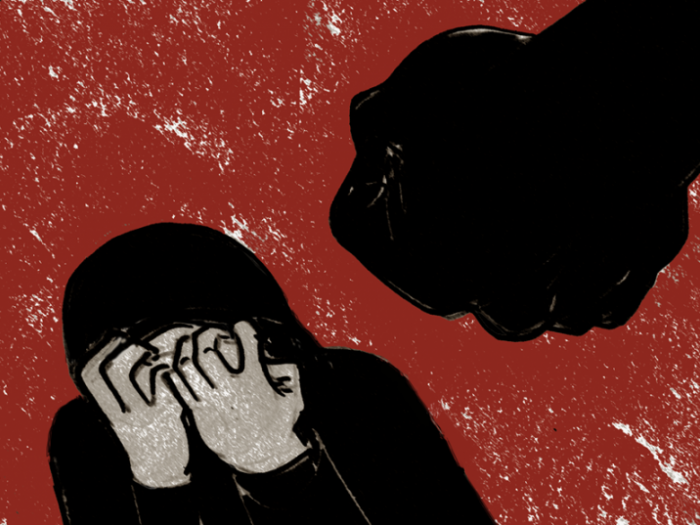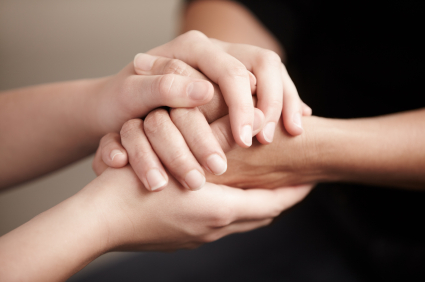#Life
Show, Don’t (Just) Tell – The Right Way to Tackling Mental Health
Published
By
Guests
By Abdallah Khan
I remember that it was humid; an anomaly in the boisterous city of Chicago, because his hair stuck to his forehead, like flies stuck in a web, when he spoke. We were having lunch on the roof, as always, our riverside offices just one floor beneath us.
Keep supporting MuslimMatters for the sake of Allah
Alhamdulillah, we're at over 850 supporters. Help us get to 900 supporters this month. All it takes is a small gift from a reader like you to keep us going, for just $2 / month.
The Prophet (SAW) has taught us the best of deeds are those that done consistently, even if they are small. Click here to support MuslimMatters with a monthly donation of $2 per month. Set it and collect blessings from Allah (swt) for the khayr you're supporting without thinking about it.
“I’m going to jump.”
“What?”
“I’m going to kill myself.”
My eyes darted from corner to corner as the roof felt like it was closing in on us. A vent system on the left. Solar panels and sky lights on the right. Satellite dishes in front of us. I had lunch here almost every day with Omar, but I was only now seeing these things, which led to the stark realization: I was only now seeing Omar.
“Don’t be so alarmed. Not right now. I still have some things to settle.”
He’d said it so matter-of-factly, as if it was just another one of his office orders.
Omar wasn’t just a colleague. I’d grown up with him. We went to the same schools, the same university, even the same internships, all by happenstance. He bought me lunch twice a week. He was the neighbor who always called the night before Eid. He was a man I prayed with, side by side, every Friday for Jumu’ah. I’d regarded him as one of closest friends and yet, what he said was beyond anything I could have ever anticipated.
I’d learn, not long after, that Omar was battling alcohol addiction, that he’d long ago had a falling out with his parents, and that he cried himself to sleep, almost every night in bed.
Alcohol, strained family relations, suicide: all these things are strictly prohibited in our religion. I know that. Omar knows that. Most children of school age know that. So, I didn’t dare remind Omar. To this day, I believe if I had, on that fateful humid day, both our lives, Allah 
Islam necessitates a sense of nuance when it comes to reverting to our fitrah[1] and all the obligations entailed therein. The fitrah, though a natural inclination, is often skewed in our formative years due to environmental factors, forbidden influences, and our own personal misgivings. Hence it simply is not enough, and often counterproductive, to expect someone to pray after informing them that lacking thereof would be akin to kufr.[2] The issue is further exacerbated when men and women such as Omar are treated as lepers, reminded, in their darkest moments, that their actions are not only forbidden, but also a one-way ticket to Hell, by communities ill-educated in the subtleties of both mental health and Islam

In other cases, where a person was never exposed to the intricacies of tawheed[3], any reminders of a foreseeable future, whether of this life or the next, are to them, nonexistent. Living with mental illness is analogous to driving a car in the dead of night, fog all encompassing. You can only see as far as the headlights. There is only now.
Tasting the sweetness of eeman[4] is like planting a seed in the desert. Along with Allah’s 
Many of us are well acquainted with Aisha’s 


First, Allah 
“They ask you about wine and gambling. Say: In them is great sin and some benefit for people, but their sin is greater than their benefit.” [Al-Baqarah;219]
Without explicitly reprimanding drinking, Allah 

The second verse to be revealed on the matter was as followed:
“O you who believe, do not approach prayer while you are intoxicated until you know what you are saying.” [Al-Nisa;43]
Allah 

It was only after the Muslims were ready, did Allah 
“O you who believe, wine, gambling, sacrificing on stone alters, and divining arrows are but defilement from the work of Satan, so avoid them that you may be successful.” [Al-Ma’idah;90]
And yet, today when we meet an alcoholic, a victim of depression, a survivor of suicide, we jump to the third step, not even bothering to hold a person’s hand the way Allah 

Though those of us quick to jump to the do’s and don’ts of the religion often have the best of intentions, worrying that our fellow Muslims will suffer in the afterlife for their actions, we must remember that what matters to Allah 


Only when we have, through Allah’s 
If you want a fellow Muslim to oblige by the fard[7], show him the sweetness of eeman through your actions, which was the way of our beloved Prophet Muhammad 
In replicating the mercy of our Messenger 


It is this mercy that led Thumamah ibn Uthal, a murderer of countless companions and even an attempted murderer of the Prophet Muhammad 

As the literary icon of his time, the famous poet, Muhammad Iqbal once said, “Sure you can deny God, but how can you deny Muhammad?” You can claim that God has never been seen, but what of Muhammad 
There is no greater human example for us to follow. So, let us learn from him and extend our mercy towards the alcoholic, the lonely, the suicidal, and the mentally ill, because even though they can only see as far as the headlights, with the right direction, that’s all they need to be guided home.
**Disclaimer: This article, for purposes of brevity, does not touch upon the vital aspect of attending to our own needs before concerning ourselves with the needs of others. Our minds and bodies have a right over us and the sufferings of another can not and should not supersede the necessities of our own mental health. Though Allah 
[1] Fitrah: A natural intuition within every human being to worship none but Allah alone
[2] Kufr: Shar’iah defines kufr as disbelief in Allah 



[3] Tawheed: Oneness of Allah
[4] Anas 

[5] Aisha 
[6] “The likeness of the one who reads Quran and memorizes it, is that he is with the righteous & honorable scribes. The likeness of the one who reads it and tries hard to memorize it even though it is difficult for him will have two rewards.” [Bukhari]
[7] Fard: Obligatory acts such as prayer every Muslim must perform
[8] [Collected by Muslim, Ahmad & others]
Abdallah Khan recently graduated from Brooklyn College with a B.S degree in Computer Science. When he is not writing code, he spends his free time in community outreach efforts, and writing articles of fiction, aimed at delving into the nuances of religion and history. Abdallah hopes to one day publish a novel about his home country of Pakistan, highlighting the country’s awe-inspiring beauty in spite of the internal and external forces that attempt to thwart the enduring nation. займы без процентов на 6 месяцев
Keep supporting MuslimMatters for the sake of Allah
Alhamdulillah, we're at over 850 supporters. Help us get to 900 supporters this month. All it takes is a small gift from a reader like you to keep us going, for just $2 / month.
The Prophet (SAW) has taught us the best of deeds are those that done consistently, even if they are small. Click here to support MuslimMatters with a monthly donation of $2 per month. Set it and collect blessings from Allah (swt) for the khayr you're supporting without thinking about it.

Ramadan In The Quiet Moments: The Spiritual Power Of What We Don’t Do

30 Nights with the Qur’an: A Ramadan Series for Muslim Teens

Keep Zakat Sacred: A Right Of The Poor, Not A Political Tool

Far Away [Part 9] – Crane Dances In The River

From The MuslimMatters Bookshelf: Ramadan Reads For 1447 AH

[Podcast] Should Muslims Ally with Conservatives or Progressives? | Imam Dawud Walid

How to Make this Ramadan Epic | Shaykh Muhammad Alshareef

[Podcast] The Parts of Being an Imam They Don’t Warn You About | Sh Mohammad Elshinawy

[Podcast] Guardians of the Tradition: Muslim Women & Islamic Education | Anse Tamara Gray

Iron Principle Under Pressure: A Profile Of Naledi Pandor

[Podcast] Guardians of the Tradition: Muslim Women & Islamic Education | Anse Tamara Gray

How to Make this Ramadan Epic | Shaykh Muhammad Alshareef

[Dhul Hijjah Series] Calling Upon the Divine: The Art of Du’a (Part 1)

IOK Ramadan 2025: Four Steps | Sh Zaid Khan

IOK Ramadan 2025: Do Your Best | Sh Zaid Khan
Trending
-
#Current Affairs4 weeks ago
[Podcast] Should Muslims Ally with Conservatives or Progressives? | Imam Dawud Walid
-
#Current Affairs1 month ago
Op-Ed: From Pakistan To Gaza – Why Senator Mushtaq Ahmad Khan Terrifies Power And Zionism
-
#Culture1 month ago
The Muslim Book Awards 2025 Winners
-
#Islam3 weeks ago
How to Make this Ramadan Epic | Shaykh Muhammad Alshareef











mohsin hassan
August 8, 2018 at 9:41 AM
MashAllah This was a really nice, and helpful article to read. The author mentions “If you want a fellow Muslim to oblige by the fard[7], show him the sweetness of eeman through your actions.” We must show not just say, because actions speak much louder than words. Another favorite line in the article is “n replicating the mercy of our Messenger ṣallallāhu ‘alayhi wa sallam (peace and blessings of Allāh be upon him) we must remember that though faith and positivity are the best medicines, they are not the only medicine. Rather prayer and trust in Allah subḥānahu wa ta’āla (glorified and exalted be He) are necessary supplements to treatments including, but not limited to, therapy, prescription medicines, and physical activities.” This shows that we must not be scared, hesitant, or ashamed to seek help via therapist, medicine, etc. The author brings out such an important topic in such a beautiful way.
JazakAllah to Abdallah for the Article. May Allah grant you the best of this dunya and the akhira. Ameen!
mohsin hassan
August 8, 2018 at 9:44 AM
I look forward to reading more of your writing in the future, I know it won’t disappoint Inn Sha Allah.